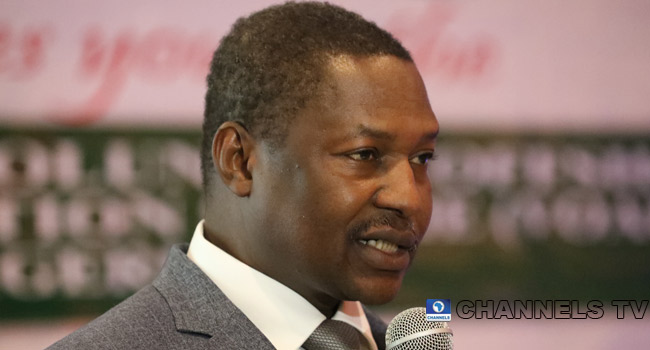The African Centre for Media and Information Literacy (AFRICMIL) on Wednesday restated its call for an honest implementation of the federal government’s whistleblowing policy as a way of ensuring the success of the war against corruption.
The Centre highlighted fair and upright application of the rules as one of three key areas in engaging the whistleblowing policy. Other areas are creating awareness and advocating effective whistleblower protection.
In a press statement signed by Chido Onumah, Coordinator of the Centre, AFRICMIL said the signals from the office of the Attorney General of the Federation and Minister of Justice which give the impression of unfair treatment of a whistleblower, John Okupurhe, were “disturbing”.
“The outcome of the reported interactions between the whistleblower and officials in the AGF’s office is depressing,” the statement said.
“You do not expect a whistleblower to be so shabbily treated that the only conclusion an unbiased observer would reach is that there is a grand plot to deny him his due.”
AFRICMIL described as worrisome the statement credited to the AGF to the effect that beyond providing information or exposing stolen public funds, whistleblowers would have to recover the funds and lodge them in stipulated accounts before they are rewarded.
The Centre accused the AGF of misreading the whistleblowing policy document released by the federal government in December 2016, adding that there is nowhere in the document that says whistleblowers have a responsibility to recover fund after providing information to the relevant authorities.
Section 12 of the whistleblowing policy FAQ document available on the website of the Federal Ministry of Finance, Budget and National Planning says: “A Whistleblower responsible for providing the Government with information that directly leads to the voluntary return of stolen or concealed public funds or assets may be entitled to anywhere between 2.5%-5.0% of amount recovered.
“In order to qualify for the reward, the Whistleblower must provide the Government with information it does not already have and could not otherwise obtain from any other publicly available source to the Government. The actual recovery must also be on account of the information provided by the Whistleblower.”
According to Onumah, “That document only says whistleblowers would get their reward following the supply of information that leads to the voluntary return of stolen or hidden funds or assets. It did not say whistleblowers must recover the funds or assets as the AGF is interpreting.”
AFRICMIL said the duty of ensuring recovery is statutorily that of the security agencies working with the administrators of the whistleblowing policy. The organization cited, for example, the Ikoyi apartment incident where upon the exposure of funds concealed in the apartment, security agents moved in and recovered the looted funds.
“That recovery was not made by the whistleblower but by security agents. And the whistleblower was rightly paid what is due to him even if after some embarrassing official delay,” the statement added.
The organization advised the AGF to promptly retract the portion of his statement that has apparently distorted the facts in the whistleblowing policy document, warning that failure to do so will be a costly disincentive to the patriotic duty of whistleblowing.
According to the statement, “No reasonable citizen will blow the whistle on stolen or hidden public funds if he is also the one to recover the funds and deposit in a bank.”
The statement called on President Muhammadu Buhari to show commitment to genuine anti-corruption war by ensuring that whistleblowers get the protection they deserve.
It urged him to ensure swift investigation of the petition sent to him by lawyers of John Okupurhe, the whistleblower in the alleged fraud in the Nigerian Ports Authority (NPA), both in the interest of justice and the survival of whistleblowing as an important tool for fighting corruption in Nigeria.




